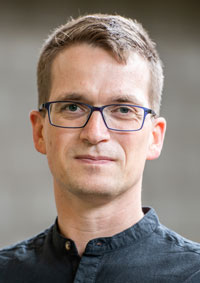Ground Magnetic Survey Exercise
Lecturers: Sebastian Uhlemann
Planning meeting in advance of survey campaign (late July)
Day 1: Travel to Saxony, setup of field camp, familiarization with equipment
Day 2: Introduction to study sites, surveying of grids and acquisition lines, initial surveying
Day 3: Groups will conduct their previous planned surveys
Day 4: Groups will conduct their previous planned surveys
Day 5: Equipment maintenance, field data review, return to Bremen
Processing and analysis of survey data in expert teams of 3-4 students
Report Part 1: Survey design, describe the problem and how the designed survey will answer the given problem, incl. survey parameters
Report Part 2: Data report, describe the acquired data, processing steps and interpretation with regards to survey target
- plan and execute a problem-specific non-seismic survey by skillfully combining non-seismic geophysical and geodetic methods, and soil/rock sampling where appropriate
- process and interpret field data by competent use of state-of-the-art processing and modelling techniques and software packages
Part 1: submission by mid-July, feedback before start of fieldtrip
Final report submission by mid-September, evaluation and feedback by mid-July
project exercise report
1) Powerpoint slides und special publications made available in Stud.IP
2) Knödel K, Lange G, Voigt H-J (2007) Environmental Geology. Springer Berlin Heidelberg, Berlin, Heidelberg
1st Day: Planning meeting in advance of survey campaign (late July)
2nd Day: Day 1: Travel to Saxony, setup of field camp, familiarization with equipment
3rd Day: Day 2: Introduction to study sites, surveying of grids and acquisition lines, initial surveying
4th Day: Day 3: Groups will conduct their previous planned surveys
5th Day: Day 4: Groups will conduct their previous planned surveys
6th Day: Day 5: Equipment maintenance, field data review, return to Bremen
7th Day: Processing and analysis of survey data in expert teams of 3-4 students
8th Day: Report Part 1: Survey design, describe the problem and how the designed survey will answer the given problem, incl. survey parameters
9th Day: Report Part 2: Data report, describe the acquired data, processing steps and interpretation with regards to survey target
10th Day:
11th Day:
12th Day:
13th Day:
14th Day:
Feld-Magnetometer, Geoelektrik-Apparatur, Datenbearbeitung mit QGIS, Eijkelkam Bohrgerät
Eckdaten
05-BGW-EG3-2
Studiengang
Bachelor Geowissenschaften
Modulname
Magnetic Exploration (until SuSe 2025)
Veranstaltungsart
Geländeübung (GÜ)
3. Studienjahr
3 CP
3 SWS
Sommersemester
Kurssprache(n)
Deutsch und Englisch
Ansprechpartner

Environmental Geophysics
Prof. Dr. Sebastian Uhlemann
GEO 4070R
Tel.: +49 421 218 - 65310
suhlemann uni-bremen.de
uni-bremen.de
Environmental Geophysics
Prof. Dr. Sebastian Uhlemann
GEO 4070R
Tel.: +49 421 218 - 65310
suhlemann uni-bremen.de
uni-bremen.deVeranstalter

Environmental Geophysics
Prof. Dr. Sebastian Uhlemann
GEO 4070R
Tel.: +49 421 218 - 65310
suhlemann uni-bremen.de
uni-bremen.de
Environmental Geophysics
Prof. Dr. Sebastian Uhlemann
GEO 4070R
Tel.: +49 421 218 - 65310
suhlemann uni-bremen.de
uni-bremen.de
